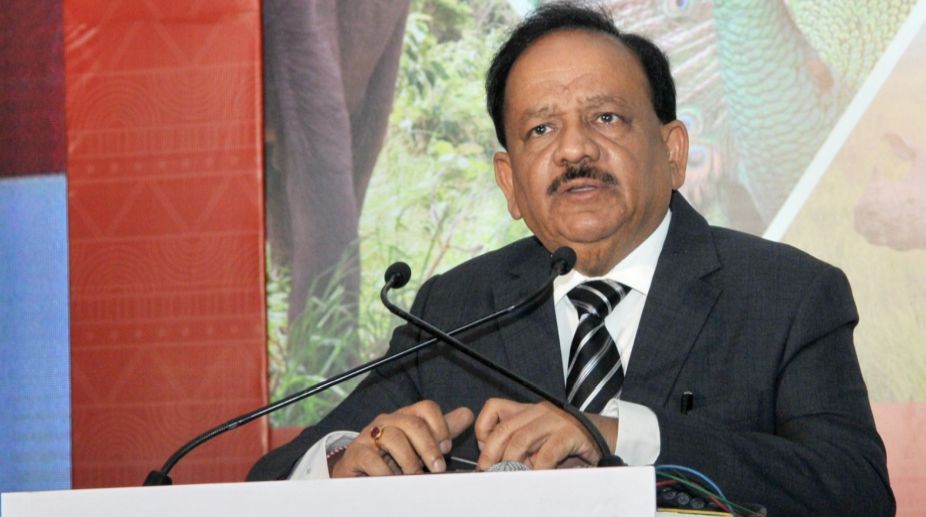GM mustard gets Genetic Engineering Appraisal Committee approval for field cultivation
Though the GEAC had opened the proposal in 2017, the Ministry had rejected it reasoning that the GEAC hold more studies on the GM crop.

Environment Minister Harsh Vardhan (Photo: PIB)
After integrating climate change into wildlife planning, putting greater thrust on wildlife health management and poaching, increasing public outreach and tweaking previous strategies, the Union Environment Ministry on Monday released the third National Wildlife Action Plan (NWAP) for 2017-31.
The NWAP 2017-31, under which there are 250 projects, is India’s road map to conserve wildlife for the next 15 years.
Advertisement
Aspiring for a global leadership in wildlife conservation, the Union Ministry’s plan is woven around the agenda of the United Nations’ 15th Sustainable Developmental Goal — “Life on Land”.
Advertisement
The plan was released here at the opening ceremony of Global Wildlife Program (GWP) that involves 19 Asian and African countries, United Nations, World Bank and other leading global organisations to deal with the wildlife crime.
Releasing the plan here, Union Environment Minister Harsh Vardhan said this was one of the most modern plans ever which “exploits all the knowledge that country has gained in past years”.
He also said that the plan ensured public participation.
“This is the most modern action plan. Maximum participation of people had been made in this plan to ensure that what we could not achieve till now, we may in the next decade,” Harsh Vardhan said.
The key strategic changes, according to the ministry, in the new plan is adopting a “landscape approach” in conservation of all the wildlife — uncultivated flora (plants) and undomesticated fauna (animals) — rather than the areas where they occur.
This means that while till now programmes and plans related to wildlife were focused on and around national parks and sanctuaries, now the strategies would be based on the landscape of the region that may not be limited to a reserve forest system alone.
The plan has been divided into five components, which are further divided into 17 themes carrying 103 conservation actions. Each theme has a set of conservation actions and projects — 250, in all.
Man-animal conflict mitigation, adapting to the climate change, managing eco-tourism, ensuring public participation in the conservation, developing human resources, strengthening research and monitoring through modern technology like radio collars and drones and ensuring fundings for the wildlife sector have been given special thrust in the planning.
“Enough is being done in terms of financial help to the states… 90 per cent of the kitty under CAMPA (Compensatory Afforestation Fund Management and Planning Authority) fund goes to states, which has funds worth $5-6 billion, roughly Rs 45,000 crore,” Environment Secretary A.N. Jha said.
He added at present, while India’s carbon sync was 7 billion tonnes, through forestation and plantation the ministry estimated it to reach 10,000 billion tonnes in near future.
Of all the 250 projects, the government has fixed 26 projects under the conservation outreach theme and 16 to ensure the public participation. Besides, 14 projects will be taken to control poaching, 11 projects to mitigate man-animal conflict and 17 projects for research and monitoring, to count a few.
Advertisement